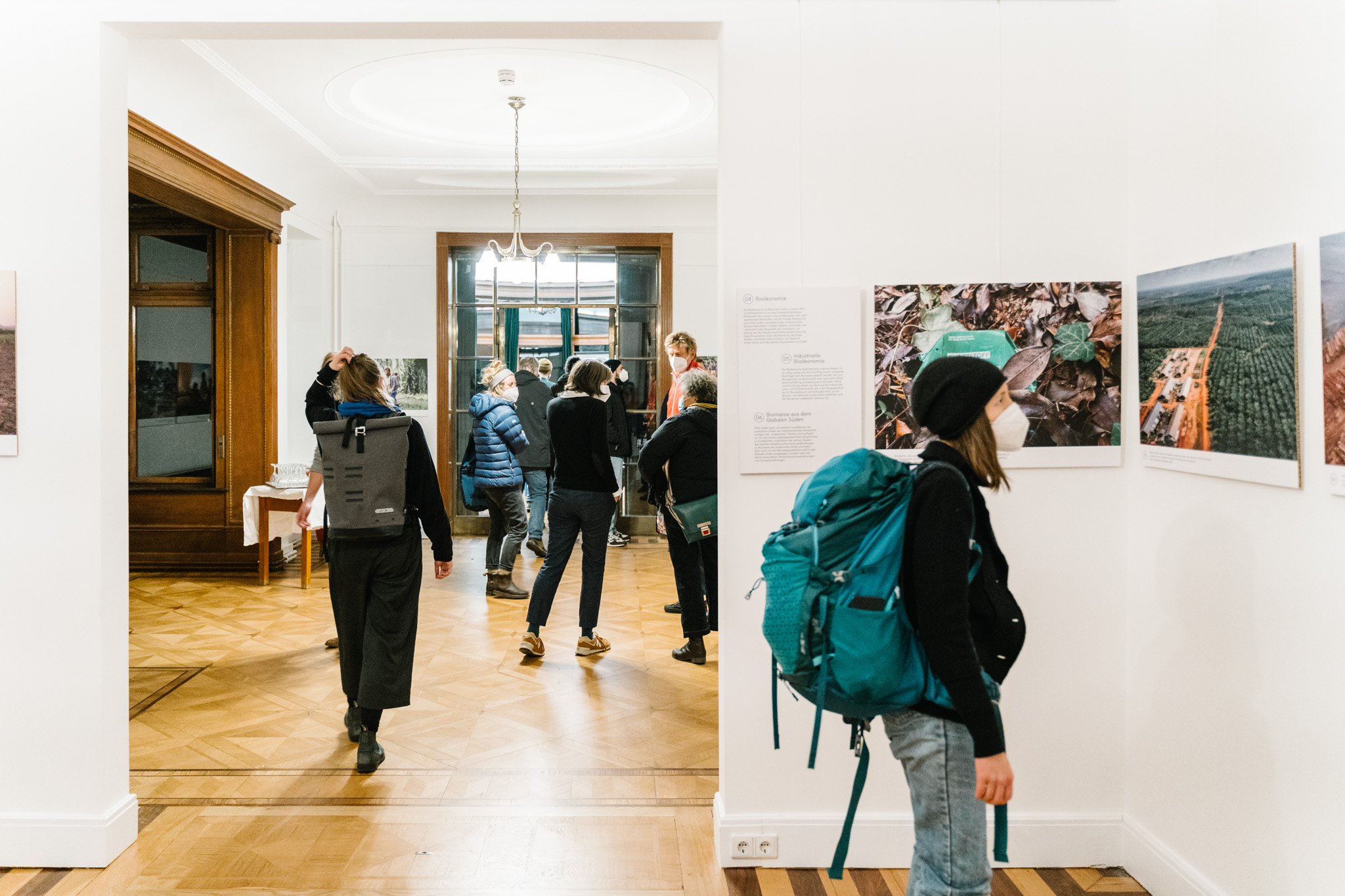Bioeconomy exhibition “On the wrong track” officially opened
Cover photo: Ana Rodríguez On Wednesday, December 8th, 2021 the photo exhibition “On the wrong track – Overexploitation of Humans and Nature for the Bioeconomy” was opened at the Institut français Bremen. At the beginning of the evening, the audience had the opportunity to take a first look at the exhibition. Afterwards, the program began in the large hall of the Institut français. denkhausbremen project manager Jana Otten gave an introduction to the topic of bioeconomy and explained the background of the exhibition to the audience. According to this, the production of renewable natural resources is not sustainable per se and often linked to human rights violations and environmental destruction in the Global South. In a video message, the tropical forest activist Sylvain Angerand from the French organization Canopée, reported on a French success story: In France, palm oil in so-called biofuels has been legally banned since 2020. Fenna Otten, tropical forest officer of Robin Wood, then gave insights into her research trips to Sumatra and highlighted, among other things, the devastating environmental impacts of …



